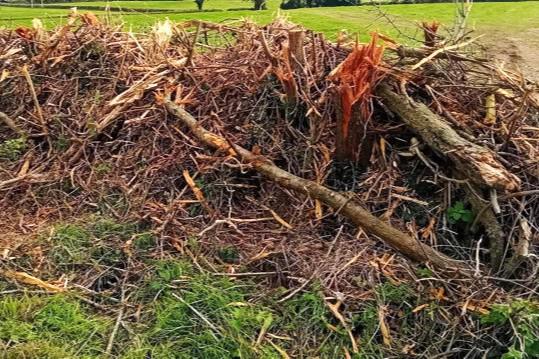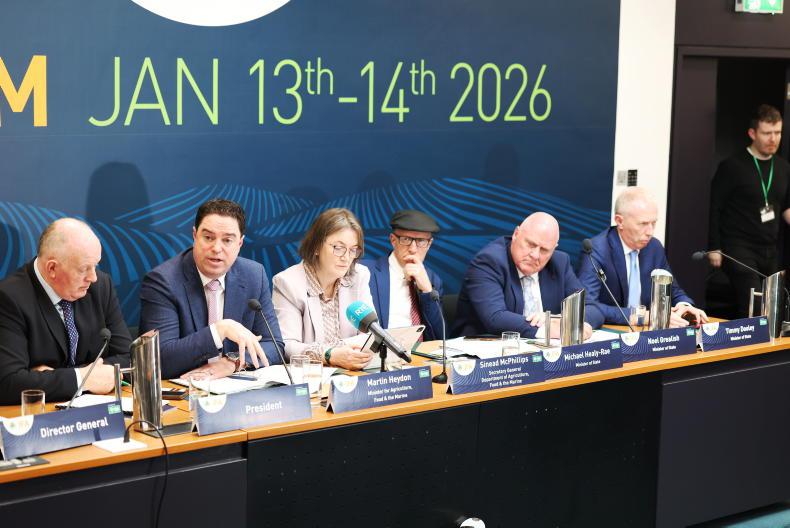Minister for Agriculture Charlie McConalogue has sought clarification from the EU on what an “extremely ambitious” proposed rewetting law could mean for Ireland at a meeting with his fellow farming ministers on Monday.
The Minister stated that further details were needed to understand aspects of the proposed law, which would see Ireland rewetting up to 35% of its drained, farmed peatlands by 2050, with other nature-friendly measures put into action on another 35%.
He asked the European Commissioner for the Environment Virginijus Sinkevicius to clarify a “number of issues” with the proposals which require “detailed consideration”.
Among these issues were the area of land that would be affected by rewetting measures and the timeline by which each member state would have to draw up a nature restoration plan giving dates and areas planned for restoration up until 2050.
The data currently available is not sufficient to give a reliable estimate of areas which could potentially be impacted by rewetting, Minister McConalogue told his EU counterparts.
The impact assessment of the planned law, the Minister said, does not “substantively assess the likely impacts on food security or the likely impacts on rural communities”.
Legal targets
During the meeting, Commissioner Sinkevicius maintained that Brussels will not “directly” impose restrictions on farmers, as long as their farming activities do not hinder the recovery of habitats and species.
He said the proposal allows for a “lot of flexibility” to member states in deciding how they will meet their targets and which measures they can impose on lands.
“The proposal does not impose restrictions directly on farmers, foresters or fishers and does not prohibit economic activities in areas where restoration measures are implemented as long as these activities allow for the recovery of the ecosystems targeted by the restoration measures.”
Funding questions
The Commissioner commented that farmers will be the first to benefit from restoration measures and that these actions will be Europe’s best “insurance policy” against heatwaves, floods and pests.
A mix of public and private investment will be needed to fund the measures, he said.
“For every euro invested, we get back at least €8 in benefits from the many healthy ecosystem services such as climate mitigation and adaptation, the provision of food, feed and natural resources,” Commissioner Sinkevicius added.
“Will farmers, foresters and fishers have to pay the price? They are the first to benefit from restored ecosystems which contribute to their livelihoods, but nobody expects for them to be the ones who pay.
“We have agreed to allocate to the biodiversity objectives 7.5% of annual spending in 2024 and 10% in 2026 and 2027.
“According to the EU Biodiversity Strategy for 2030, at least €20bn a year should be spent on nature.”
Read more
EU law could see 70% of drained, farmed peats rewet by 2050
All options must be considered to overcome fertiliser crisis - Minister
Rewetting will not stop farming - TDs
McConalogue ‘open’ to mobilising crisis reserve in 2023
Minister for Agriculture Charlie McConalogue has sought clarification from the EU on what an “extremely ambitious” proposed rewetting law could mean for Ireland at a meeting with his fellow farming ministers on Monday.
The Minister stated that further details were needed to understand aspects of the proposed law, which would see Ireland rewetting up to 35% of its drained, farmed peatlands by 2050, with other nature-friendly measures put into action on another 35%.
He asked the European Commissioner for the Environment Virginijus Sinkevicius to clarify a “number of issues” with the proposals which require “detailed consideration”.
Among these issues were the area of land that would be affected by rewetting measures and the timeline by which each member state would have to draw up a nature restoration plan giving dates and areas planned for restoration up until 2050.
The data currently available is not sufficient to give a reliable estimate of areas which could potentially be impacted by rewetting, Minister McConalogue told his EU counterparts.
The impact assessment of the planned law, the Minister said, does not “substantively assess the likely impacts on food security or the likely impacts on rural communities”.
Legal targets
During the meeting, Commissioner Sinkevicius maintained that Brussels will not “directly” impose restrictions on farmers, as long as their farming activities do not hinder the recovery of habitats and species.
He said the proposal allows for a “lot of flexibility” to member states in deciding how they will meet their targets and which measures they can impose on lands.
“The proposal does not impose restrictions directly on farmers, foresters or fishers and does not prohibit economic activities in areas where restoration measures are implemented as long as these activities allow for the recovery of the ecosystems targeted by the restoration measures.”
Funding questions
The Commissioner commented that farmers will be the first to benefit from restoration measures and that these actions will be Europe’s best “insurance policy” against heatwaves, floods and pests.
A mix of public and private investment will be needed to fund the measures, he said.
“For every euro invested, we get back at least €8 in benefits from the many healthy ecosystem services such as climate mitigation and adaptation, the provision of food, feed and natural resources,” Commissioner Sinkevicius added.
“Will farmers, foresters and fishers have to pay the price? They are the first to benefit from restored ecosystems which contribute to their livelihoods, but nobody expects for them to be the ones who pay.
“We have agreed to allocate to the biodiversity objectives 7.5% of annual spending in 2024 and 10% in 2026 and 2027.
“According to the EU Biodiversity Strategy for 2030, at least €20bn a year should be spent on nature.”
Read more
EU law could see 70% of drained, farmed peats rewet by 2050
All options must be considered to overcome fertiliser crisis - Minister
Rewetting will not stop farming - TDs
McConalogue ‘open’ to mobilising crisis reserve in 2023










SHARING OPTIONS